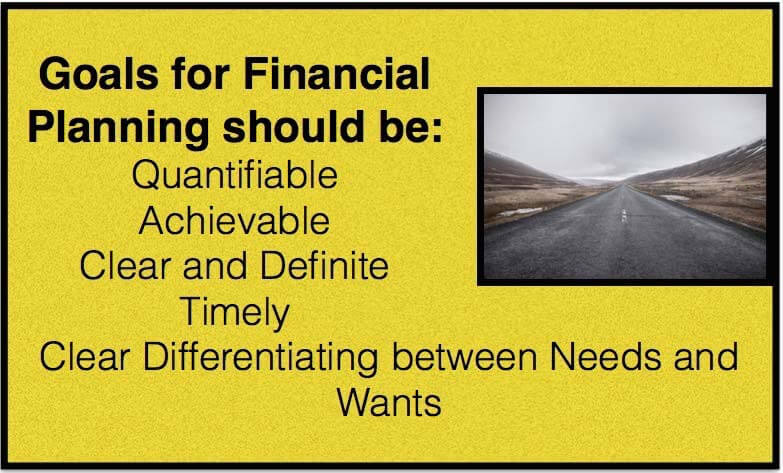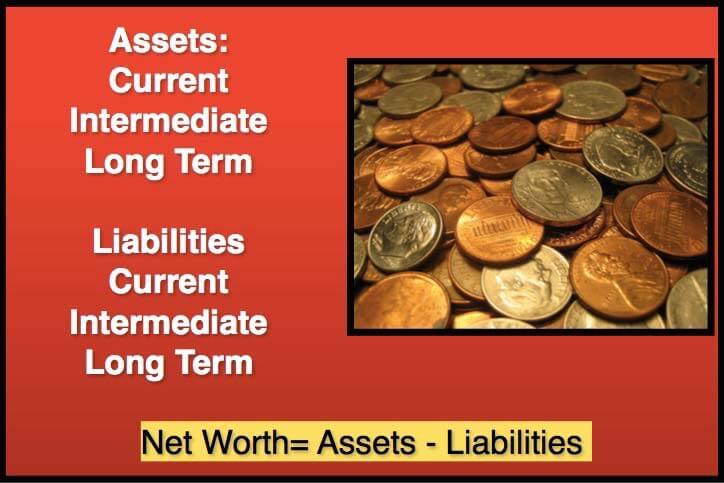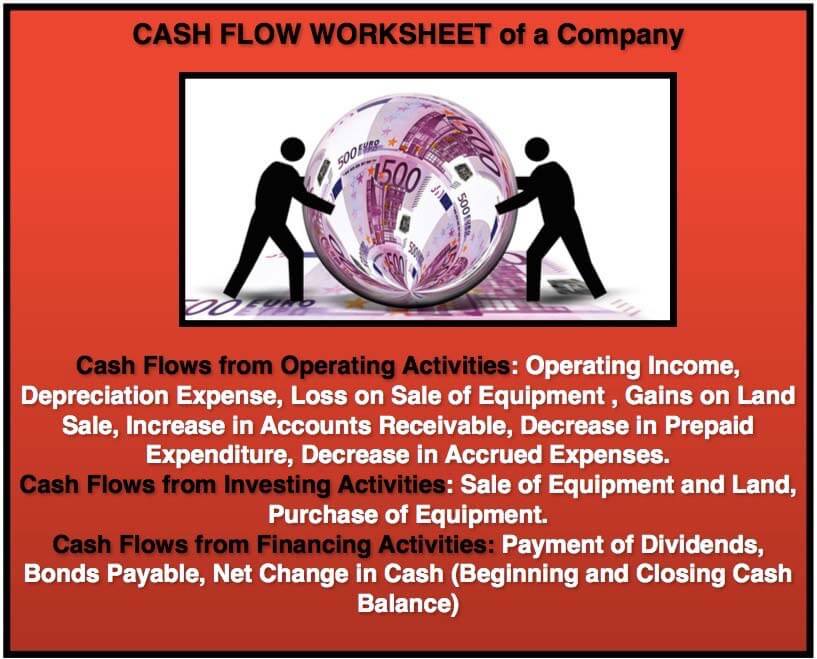Updated October 26, 2023

Introduction to Financial Planning Career Path
Being wise about money involves making each plan count. Steps of the financial planning career path success involve thinking about ways to make life more comfortable and following these. Financial intelligence should not come at the cost of monetary losses. Money is an essential resource for living life well. So, think ahead and plan well for optimal financial security.
The Following Are The 24 Most Valuable Steps of Financial Planning Career Path Success
1. Earn More, Spend Less
It is a cardinal rule of effective financial management. You must spend less and earn more yearly to maintain your lifestyle. Making every penny count is a sure-fire formula for financial planning career path success. Consider each item of expenditure and see if your business/personal finances can handle the burden. You must rethink your financial planning career tools strategy if it is too heavy.
2. Be Fair to Yourself
The key to success in the financial planning career path is ensuring you have enough savings for a golden retirement and an investment account that would sustain you for life. Many people pay their bills but do not save for rainy days. Businesses make losses for these reasons too. Capital needs to be put away for tough times; otherwise, you are in for hard knocks from a financial perspective.
3. The Objective Risk-Benefit Analysis is a Must
Scrutinize the risks in life or business and ensure them appropriately. You need to measure the chance, check out the value of the options, consult professionals, and cover larger risks. If you are young, morbidity is your biggest risk. If you are in a single-income household and have kids, you need to consider life insurance. Similarly, if your business is growing, you must guard its financial health. Taking out a financial Planning career path insurance for your business involves checking the profit-loss ratio and other financial indicators.
4. Play the Numbers Game
Don’t shy away from checking on your finances. Remember that your personal or professional success depends on the degree of your financial know-how. Never look after Financial intelligence and knowledge of numbers and accounting principles. Whether you lack the interest or the time, neglecting this aspect of financial knowledge can prove too pricey. You must ensure you have a good working knowledge of how much you earn and spend, your debts, and your net worth. Monitor your personal and professional accounts well if you want to flourish in the business of life.
5. Know Your Attitudes Toward Money
Are you a spender or a saver? Is your approach towards money that of avoidance or fear? Analyze your attitude towards money to take more steps towards financial planning career success. Your history, spending habits, and perspective toward your finances is the key to a smart financial planning career path. Consider each part of the equation to get the perfect formula for a financial planning career path success.
Image source: pixabay.com6. Consider the Number of Essential Expenditures and Your Money-Related Values
You need to invest time and energy, besides money, to determine your priorities. Whether you are financial planning for business or life, financial success is largely a matter of being clear about your values towards money. People may talk about the disastrous business deal that lost them cash or how the recession hijacked a retirement plan, but you can come out with flying colors if you think ahead. The important point is to remember that you need to assess your values and decide what counts most for you, money-wise.
7. Assess Which Income-Generating Investment is the Best for you
Equities and stocks are long-term investments. Those looking to make a quick buck must remember this before placing their money in stocks. You need to be well-diversified. Putting all your eggs in one basket can prove as detrimental as counting your chickens before they hatch as far as investments are concerned. Always expect the unexpected when it comes to financial events.
8. Don’t use your Life Savings for Investments
Whatever short-term and emergency funds you have, ensure they are distinct from the money allocated for investments. Just because stock markets shoot up does not mean you gun to it using your life savings. The get-rich-quick schemes are the most deceptive. Even if the idea of leaving cash on the sidelines is a big issue, losing the money in one go will certainly not be a small problem. So, don’t be swayed by the stock market and the euphoria of sudden gains.
9. Watch out for Financial con Artists
The highs and lows of financial markets and schemes are not for everyone. Don’t buy into the rags-to-riches schemes touted in the financial community. A biotech stock guaranteed to make a fortune after USFDA approval, a tech stock that will shoot up following a financial merger…. a rumor-mongering in the markets is rampant. Don’t get caught in the bull run and be subjected to a financial stampede when the stocks plunge.
10. Financial Goals and Objectives are Vital
From a car that starts its journey to an athlete in training, everyone needs goals to get to their destination. Goals and objectives should provide the perfect roadmap for your financial future.
Financial Planning Goals should be agreed upon and documented with financial advisers to assist in measuring progress. The goal must be highly relevant. Most importantly, financial planning goals should be routine and up-to-date to reflect changing circumstances.
11. Organize your Financial and Personal Information
The success of the financial planning process largely depends on how clear and available your financial planning information is to your financial adviser. This includes the following:
- Risk attitude
- Tolerance
- Aversion
- Capacity for risk
- Income
- Expenditure
- Assets
- Liabilities
- Analyzing financial information: The perfect formula for financial success
Financial planning strategy involves using ratios to promote a deeper understanding of financial circumstances and strengths, weaknesses, opportunities, and threats. This includes metrics such as Solvency, Savings, Debt Service, and Liquidity ratios. Risk tolerance plays a central role in asset allocation for investment.
12. Formulating a Stable Financial Plan
Receiving and analyzing information is the foundation of the financial planning strategy. A financial strategy needs to include the following:
- Annual consolidated tax estimate
- Net worth status( a balance sheet)
- Annual cash flow report (with surplus or deficit)
14. Implementing and Reviewing the Financial Plan
An annual review of financial planning objectives must consider any modifications to situations, incomes, asset values, and other factors. A proposed course of action comprising adopting an investment strategy, the function of the debt provider, and modifications to income and spending will be defined once plan analysis and development are complete. Interaction with financial product providers will play a major role here, too.
15. Financial Security Goes Hand in Hand with Wealth Generation
Financial planning strategy involves a guarantee for financial security as well as wealth. Income is not necessarily a determinant of financial success, but financial security is.
16. Creating a Spendings and Savings Plan
A goal-oriented financial planning strategy helps in tracking progress. There are 3 types of goals: short-range, mid-range, and long-range.
For the perfect roadmap to financial planning career path success, you must be clear about whether you are on the right track or changes must be made. Short-range goals are met in a year or less, while mid-range goals involve a period of one to five years. Long-range goals are those which are accomplished in more than half a decade. Taking an objective view of your current financial situation is equally important.
The ABC of Financial Planning
a. Net Worth
Liabilities are commitments that need to be made, whereas owned assets have a monetary worth. Assets equal items like the house and savings account, while liabilities are the loans and debts one incurs. Net worth is the difference between the two, whereby assets are more than liabilities if net worth is positive and vice versa.
Net worth is a snapshot of the financial situation at a certain period. Calculating net worth is necessary and should rise over time for financial success.
b. Cash Flow
Where the money goes, or the monthly cash flow, is also an important consideration. If you do not detect symptoms of financial distress quickly, monetary problems will continue to plague you. Assessing the cash flow is an important step in a successful financial planning career path. While incomes are cash inflows, expenses are cash outflows. A Cash Flow worksheet helps to understand accurate income and expenditure. Gross income is tax-deductible, following which it is known as net income. Savings are an expense too. A spending and savings plan should specify current as well as future expenses.
c. Savings and Spendings Plan
Creating a savings and spending plan involves taking the golden rule of money management into account:
Expenses<Income: Most Preferable
Expenses=Income: Acceptable
Expenses> Income: Not Preferable
Think of ways to increase your income and reduce your expenses to succeed in a financial planning career.
17. Form an Emergency Savings Fund
Saving for that rainy day is important. Your financial umbrella can protect you from the storm, whether it is a job loss, car breakdown, or foreclosure. Another key to financial planning for financial emergencies is to ensure that money is parked so there are no penalties for easy withdrawal. Savings are easier if they come to you naturally. Many financial institutions allow periodic automatic funds transfers if regular deposits are difficult to make. But even if you are penny-wise and pound-foolish, savings can be a natural buffer against financial insolvency.
18. Invest in Keeping the Rules in Mind
Investment classes are roughly three, and each has its golden standards.
Stocks: Share of stock represents the percentage of ownership within a corporation. There are infinite options, from owning one-millionth of a company to being its primary shareholder. While there are no assurances, stocks often increase in value over time above the amount put into them.
Bonds: Cementing a solid financial base is a bond that is a loan to a firm or organization such as the government. As a bondholder or leader, you are a source of funds for which you receive the principal, known as par value at the time of the maturing of the bond, and periodic interest while you hold it. Bonds form the golden mean between stock and cash equivalents concerning risks and returns.
Cash equivalents: These are assets that are easily convertible into cash, such as savings and checking accounts, money market deposit accounts, treasury bills, and certificates of deposit.
Money for short-range goals should be in cash equivalents, while for long and medium-term ranges, it can be in stocks or bonds. Note that the return on cash equivalents is less than the rate of price rise or inflation over time. Stocks and bonds have a higher return as compared to cash equivalents. The longer the investment period, the lower the risk that investments will lessen in value.
(Image source: pixabay.com)19. Diversify, Diversify, Diversify!
Balance is crucial in finances, just like it is in life. Investments should be different to lower the risk of financial loss and boost the likelihood that a career in financial planning will be successful. A well-balanced portfolio with a mixture of cash equivalents, bonds, and stocks will help you to maintain your financial equilibrium. Mutual funds are a good way to ensure diversification.
20. Insurance: Making sure you are Covered
Come hail or storm, your insurance will protect against rainy days. So whether it is events like illness, accidents, or fires, quieting the storm is simply a matter of insuring yourself. Health insurance is a necessary element of financial planning strategy. Catastrophic medical insurance covers more than routine costs and has high deductibles but low premiums. For employed people, disability insurance is important because this replaces a portion of your income following the inability to work. For those dependent on you, nothing is more important than your life.
That is why ensuring your life is a critical step to take if anyone relies on your support. Another must is car insurance. To further emphasize the point, collision protection, uninsured motorist protection, and medical expenses coverage are included in addition to liability coverage. Hance insurance policies can be beneficial to you, no matter what the damage is. Those who have a mortgage on their properties must have house insurance. This type of insurance covers all losses, from theft and liability to fire.
21. Credit History: Get a good Financial Scorecard
Credit reports and scores can influence everything from loan eligibility to finding a job and getting financial planning insurance at low premiums. The credit score is the numeric summary of the information within your credit report designed to measure the risk of nonpayment of loans.
Catch 22: To get a good credit report and score, you must have credit, and approval for credit relies on having a good history.
(Image source: pixabay.com)The Magic Bullet: Secured credit cards can be a way out for first-time credit takers. These are easier to get than regular credit cards. On the downside, the credit limit is low, and fees can be high. Another option is to get a cosigner with a good credit history to vouch for you.
22. Kickstart your Debt Repayment
A good ingredient for the perfect recipe for financial planning career path success carries a balance on credit cards. Having debt can swallow up a large chunk of your income and cost you much more interest payments. Increase your payments to ensure freedom from debts. Lowering your interest rates is a good financial strategy, too. You can ask creditors to lower interest rates. Transferring the balance to a card with a lower interest rate is also an effective tactic. Another sound financial move is to pay off debt with a home loan or encash on refinance. Remember that you can use multiple strategies to speed up the debt repayment process, which is a very important milestone in the roadmap to financial planning career path success.
23. Do your Homework
Money matters, whichever way you look at it. Financial matters are easy to handle if you do enough research. Apart from financial attitudes, tuning into a financial professional can also serve as a channel for financial planning career success. It includes investment advisers, financial planners, credit counselors, and financial planning insurance agents. Continue on the path towards learning all about financial planning to hit that jackpot. The successful financial planning process is a continuous process. You have to monitor spending, savings, and investments and modify your financial plan based on this.
24. Be SMART about your Financial Goals
Financial goals should be the following:
S= Specific
M=Measurable
A=Achievable
R=Realistic
T=Timely
Listing your obligations and identifying your areas of strengths and limitations is also important to assess yourself accurately.
Conclusion
Financial planning career path success is simply considering all the complexities and examining money matters from every angle. It can be attained through steps that will bring you closer to your destination only if you are determined to execute the plan. Any plan is only as good as its successful execution. Investing in financial knowledge will pay good dividends, too. Financial Planning strategy for success involves bringing future challenges into the present so that you can take action in the here and now. How you will live tomorrow depends upon your present investment plan, so make it count.
Related Articles
Here are some articles that will help you get more details about the Financial Planning career path, so just go through the link.








